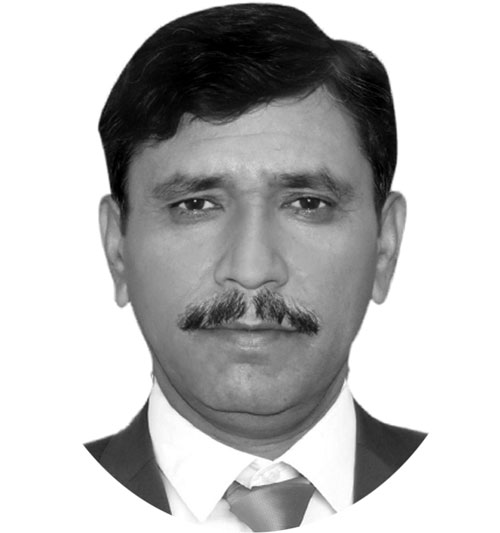The road to reconciliation
WHILE the Musharraf era is known as the golden era of local government, the slogan of ‘strong provinces, strong centre’ is also associated with it.
When the concept of provincial autonomy took shape through the 18th Amendment, the principle was established that politically and financially autonomous local governments would guarantee that powers and resources would not stuck in provincial capitals.
The Parliamentary Committee on constitutional reforms also adhered to another principle in its clause-by-clause review of the constitution: the religious character of the constitution would be kept intact.
So, the country’s liberal and progressive parties were contented with the supremacy of parliament, the four-nation federation and provincial autonomy.
In this way, tradition of political reconciliation established through Charter of Democracy made its fullest expression in the 18th Constitutional amendment.
In the post-devolution scenario, the Pakistan People’s Party and the PML-N became deeply entrenched not only in Sindh and Punjab respectively, but also took turns in the Centre as well.
A culture of ‘brotherhood’ prevented them fielding candidates against each other, even in the by-elections.
Various legislative measures, particularly the ones relating to the appointment of institutional heads with the consultation of both the ruling party and the opposition gave rise to the two-party system in the country.
The issue of accountability became secondary when other parliamentary parties were taken on board as well. The cost of political reconciliation was quite visible.
On the one hand, corruption brought the country’s economy to the brink; on the other hand, the provinces pushed to the wall the local governments.
The short story of decentralization is that power and resources shifted from Islamabad have become stuck in the four provincial capitals — Lahore, Peshawar, Quetta and Karachi.
The whole of Pakistan is still looking with ‘jaundice eyes’ at these peripheral cities as to when they let the rest to reap the benefits of devolution. There were hopes from the PTI but they did not materialize.
The party has followed in the footsteps of its predecessors, although the only way to achieve the objectives, which it has duly promised to the people, is through constitutionally mandated politically and financially independent local governments.
Just as its predecessors failed miserably to perform on Millennium Development Goals (related to the provision of fundamental rights), the current government is also poised to fail on Sustainable Development Goals (SDGs) by rendering local governments ineffective and crippled. Not only its own credibility but also that of democracy is at stake.
At present, no political party seems to be interested in the installation of the constitutionally mandated third-tier government system.
Obstacles are constantly being raised, the Constitution is being violated continuously and, consequently, the people remain deprived of their fundamental right to govern themselves.
Neither the Election Commission is fulfilling its responsibility nor are the courts succeeding in enforcing the fundamental right of the people.
The failure to implement the third-tier system of government has emerged as the biggest reason behind the factors that threaten national unity and lead to hypocrisy in politics.
In the absence of a provincial finance commission, the distribution of resources is not fair. When basic services do not reach the people, politics loses its focus on basic rights.
Instead of working on policies and programs meant for the uplift of the masses, political parties hide behind parochial tendencies like provincialism, sectarianism and racism for the sake of their survival.
As crime and violence increase in the face of hunger and disease, the foundations of law and order weaken.
The demand for new provinces, which was sought to be suppressed by the 18th Amendment, is also due to the non-existence of autonomous local governments, although the provinces are not a substitute for local governments. The absence of local governments means that we have become well-frogs.
All our energies are focused on creating contradictions and then eliminating them. Despite having the resources, we are in the grip of hunger and disease because we are spending our energies on cultivating prejudices.
Our focus is not on the world around. That makes us not a nation but a helpless mob. Not an organized society but a jungle where lawlessness reigns supreme.
Of course, we have to get out of the abyss and the way out is to adopt bottom-top approach. The way out, luckily, is provided by the constitution: Article140-A.
The new national narrative for political reconciliation needs be based on strong arguments.
The dream of peace and stability at home front can’t be realised without restoring freedoms, taken away by the progenies of our colonial masters, at grassroots level.
Political stability or national integration cannot be achieved without timely, easy and assured provision of fundamental rights at the doorsteps of the people. Sustainable development cannot be dreamed up by concentrating wealth in a few cities.
Only the automatic transfer of funds to local governments and their freedom to spend them as they deem fit will ensure the participation of all regions in the race for sustainable socio-economic growth.
With the devolution of power and resources is also connected the revival of the media particularly the FM radios and local newspapers.
Providing media new window of opportunity, not punitive measures, will make it possible to tap its potential to project the country’s soft image.
Using media as a tool to empower the people will also prove a key to resolve conflicts and promote harmony of interests among varied stakeholders in politics and economy.
Only then, our decision-makers will be able to understand the complexities of the strategic milieu and help the country find a proper place under the sun.
—The writer is contributing columnist, based in Islamabad.










